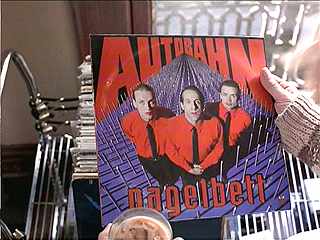[NOTE: this post originally appeared on Datachondria, a blog dedicated to technology, data, and modern life.]
Laura Miller had an interesting piece in the New York
Times last year about
the difficulties some people face keeping their book collections lean. It contained this observation:
When you're young and still constructing an identity, the physical emblems of your inner life appear more essential, and if you're single, your bookshelves provide a way of advertising your discernment to potential mates. I’ve met readers who have jettisoned whole categories of titles — theology, say, or poststructuralist theory — that they once considered desperately important.
We surround ourselves with books and other cultural objects not only because we enjoy them and may wish to enjoy them again. They also help us to moor ourselves -- to remind us of the identities that we have constructed for ourselves; to delineate those identities to others; to remind us of the arduous processes we've undergone to create and solidify our cultural perspectives. Cultural objects actually come to embody us if we allow them to. We arrange our book collections -- consciously or unconsciously -- to show a side of ourselves to others and back to ourselves.
What's true of books can be even more true of music, which is more explicitly public. Music, obviously, transforms the atmosphere around you, both figuratively and literally. Unless your sole experience of music is by headphones, your visitors and friends are exposed to your music regardless of their own preferences or interests. Music selection at a party is as critical a part of the activity as planning food and inviting the appropriate mix of people. While displaying your books -- just like prominently reading Gravity's Rainbow on the subway -- is public manifestation of a (usually) private activity, listening to music is always, by default, public.
What better way to show off your superlative cultural taste than to have your guests literally stand in it?
This is why, I think, the digitization of music risks losing an important element -- the ability to have one's music collection available for the browsing of visitors. Without LP bins or CD shelves, how might a casual browser chance upon something that showcases your cultural identity?
